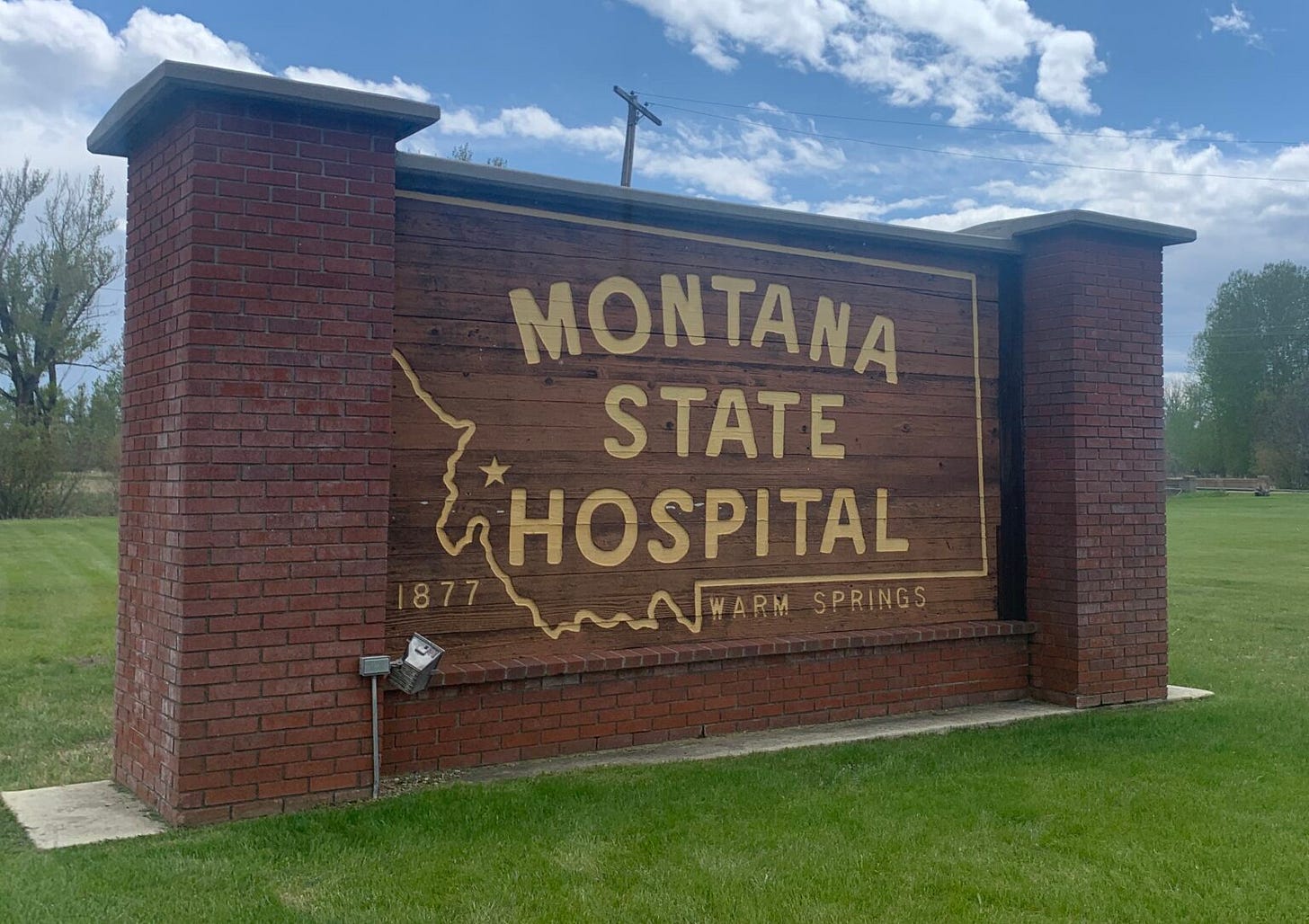Committee Tables Bill to Split Health Department
Sponsor describes agency as ‘charmed’ and wasteful with money, and legislators as enablers
By Keila Szpaller for the Daily Montanan
Admonishing the Montana Legislature for being the “enabler” of a “pampered” and “dysfunctional” health department, Representative John Fitzpatrick said Monday it’s time to break up the largest bureaucracy in the state.
The Republican from Anaconda said legislators have been forking over tens of millions of dollars to the Department of Public Health and Human Services (DPHHS) and excusing it from accountability, and it’s time for a structural change.
“The problem with DPHHS is it’s too big, it’s inefficient, and the service quality declines,” Fitzpatrick said.
Fitzpatrick made his remarks in support of House Bill 851, which he said would transfer administration of state healthcare institutions and community-based programs to a new department of health services.
But his arguments didn’t fly with the Senate Public Health, Welfare and Safety Committee, which unanimously tabled his bill the same day.
The health department has experienced major and high-profile challenges, most notably the Montana State Hospital’s loss of federal funds and decertification by the Centers for Medicare and Medicaid Services in 2022.
However, during the hearing, members of the health community said the department is making progress, and a change would disrupt that trajectory.
Douglas Harrington, state medical officer, said in testimony regarding the confirmation of the health department director, Charlie Brereton, nearly 50 different groups expressed support not only for the director but for the path on which he has set the agency.
Additionally, Harrington said all seven health department facilities have stable leadership.
For the first time in years, nursing vacancies have been reduced by 30%, and the agency is recruiting roughly one new nurse a week, he said. Except for one-on-one visits, he said patient costs are down 25%.
“The bill is highly problematic for us at a time when significant momentum has been achieved,” Harrington said.
The health department annual plan for the current fiscal year — which ends June 30 — said the agency aims to implement 100% of required CMS recertification reforms at the state hospital in Warm Springs.
DPHHS did not respond to a question about whether the hospital will reach that goal this year.
Echoing the comments from many opponents of the bill, Senator Carl Glimm, R-Kila, said the idea to split the agency is so massive, it would need to be studied first.
Additionally, Glimm said, the state is starting to see positive results.
“Frankly, I think if you rip it in two right now, I think that starts to tear apart some of the effect of what we have going on there,” Glimm said.
Senator Daniel Emrich, R-Great Falls, said he agreed.
Emrich said the bill wasn’t fully baked, essentially directing the governor to issue executive orders to finish it, and he moved to table it, which the committee supported on an 11-0 vote.
Even if legislators resurrect the bill, it may meet a hurdle in the Governor’s Office.
At a press conference last week, Governor Greg Gianforte said he would not comment on the specific bill, but he said generally, his administration is opposed to bigger government.
He said splitting up an agency means two separate executive teams and potential silos that would make government less efficient.
“Those are principles that matter to our administration,” Gianforte said.
The House had supported the bill on an 82-15 vote, and Fitzpatrick was unrelenting in his criticism of the agency in committee. He said the state hospital is not in his district, but it’s close, and he gets frequent complaints about it.
Fitzpatrick also said the health department has spent profligately because it has failed to properly recruit, and legislators have been complicit in “shoveling the public’s money out like water going over the dam.”
“DPHHS has burned through $71 million to pay for traveling health care staff,” Fitzpatrick said. “That’s $97,000 a day.”
Most of the people who testified, though, said the bill would have negative consequences for the people the department is serving, although some said they appreciated the sponsor’s hunt for efficiencies and his care for Montanans.
Kali Wicks, with national mental health advocacy organization Inseparable, thanked Fitzpatrick for his interest in the topic, but said the bill had the potential to stop progress “in its tracks” and “create some issues with continuity of care.”
Wicks agreed it might be time for a study bill if time allowed.
Mike Chavers, representing the Yellowstone Boys and Girls Ranch and the Behavioral Health Alliance of Montana, said change is hard, and progress in public systems can feel “painfully slow,” but HB 851 would derail momentum.
“We must oppose this bill, not because we’re resistant to reform, but because we started to see the fruits of our hard work,” Chavers said.
The agency’s chief legal counsel, Paula Stannard, said the bill could raise a “significant legal issue” depending on the way Montana broke up the department.
Stannard said federal rules require a single state agency to administer the state Medicaid plan, and a split could risk federal funds if it created separate points of contact.




